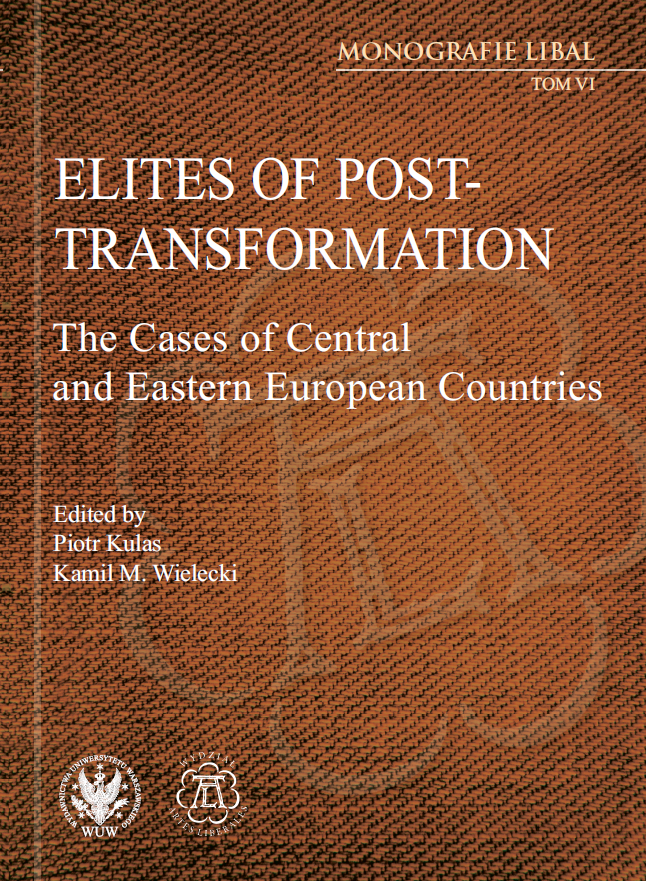THE POST-INTELLIGENTSIA’S LONG ENTRY INTO THE 21ST CENTURY
THE POST-INTELLIGENTSIA’S LONG ENTRY INTO THE 21ST CENTURY
CONTINUITY AND CHANGE
Author(s): Piotr Kulas
Subject(s): Politics, Sociology, Security and defense
Published by: Wydawnictwa Uniwersytetu Warszawskiego
Keywords: Polish intelligentsia; rank order; status society; ethos; transformation; post-intelligentsia
Summary/Abstract: The main aim of this article is to examine the contemporary Polish intelligentsia. Since the second half of the 19th century, the intelligentsia has been one of the most important groups in Polish society and culture. By organizing civil society, the intelligentsia tried to maintain a sense of national unity and even “replace” the lost and partitioned state. However, its importance has been diminishing in parallel with the process of transformation after 1989. The author traces the main causes that led to the current situation. Unlike some scholars, he claims that the intelligentsia neither has “retired from the stage” nor does it play a hegemonic role in Polish society. By adopting the combined perspective of historical sociology and analysing qualitative empirical data on the intelligentsia’s elite (i.e., in-depth interviews, articles, statements, discussions, books, etc.), the author argues that the intelligentsia has not been transformed into a middle class but neither does it exist in its former state. Since the current stratification in Poland is not based on rank order, the importance and status of the intelligentsia are diminishing. However, representatives of Polish elites have retained some characteristics of the former status group. Thus, the author suggests that “post-intelligentsia” would be a more accurate description of the group’s current condition.
Book: Elites of Post-Transformation
- Page Range: 215-253
- Page Count: 39
- Publication Year: 2024
- Language: English
- Content File-PDF

